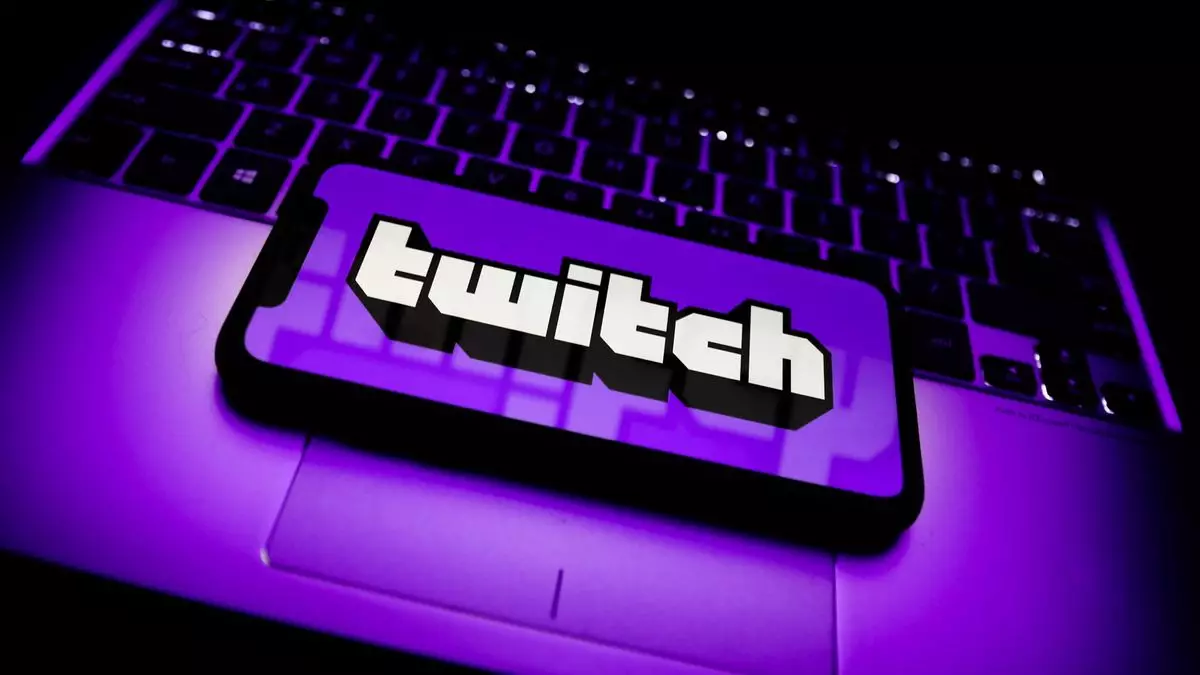Recently, Twitch, the popular live-streaming platform, made headlines for its new rule requiring streams that touch on “politics and sensitive social issues” to carry a Content Classification Label (CCL). This policy rollout, which seemed aimed at promoting responsible discussion, has been met with severe backlash from various user communities, particularly among marginalized groups. However, just a few days later, Twitch updated the policy to exempt discussions around “lived experiences” from this labeling requirement. This backtracking raises several questions about the platform’s intentions and its approach to content moderation in a space that has become increasingly politicized.
Initially, Twitch’s policy appeared to be a response to escalating tensions involving allegations of antisemitism and Islamophobia on the platform. The need for a clear and cohesive strategy was spurred by significant incidents, including the ban of popular streamer Zack “Asmongold” Hoyt for making racist remarks, which highlighted the urgent necessity for more stringent content guidelines. Still, the introduction of a content label for sensitive topics quickly became contentious, with many viewers and streamers questioning whether their very existence was being politicized, particularly within the LGBTQ+ community.
Twitch’s announcement of revised policy language sought to clarify when a content label was necessary. The platform stated that streamers discussing their personal experiences would not require a label. However, the criteria for when a stream crosses the line into needing a label—or being deemed “polarizing or inflammatory”—remains nebulous. This ambiguity is particularly concerning for streamers, especially those from marginalized backgrounds, who may find their discussions mischaracterized by viewers with opposing viewpoints.
The update also removed specific items from the original guidelines relating to discussions of reproductive rights and LGBTQ+ issues, reframing them under a more general requirement for polarizing discussions. Though this might seem like a step forward in normalizing essential rights as non-political topics, it still introduces a layer of subjectivity that could be weaponized against marginalized voices. The vagueness surrounding the terms of the classifications leads to inevitable dilemmas around enforcement and interpretation. Who decides what constitutes “polarizing” discourse?
The response from the Twitch community has been largely critical. A post on Twitch’s UserVoice forum calling for the outright removal of the sensitive social issues bullet point accumulated over 38,000 votes before it was closed, illustrating widespread dissatisfaction. The underlying sentiment suggests that community members feel the platform’s guidelines are at odds with their rights and identities. An ongoing thread calling for the removal of the contentious point has continued to garner attention and votes, signaling that the clarification made doesn’t adequately address the concerns at hand.
At the core of the debate is the blurred line between personal experience and political discourse. As highlighted by community comments, discussions about personal rights—be it reproductive rights or LGBTQ+ rights—can effortlessly become labeled as political when they reflect the speaker’s lived experiences. This subjective interpretation opens the door for potential harassment from other users who may report such streams based on their biases, thus creating a hostile environment for those discussing important personal topics.
The implications of Twitch’s policy decisions extend well beyond the immediate labeling of streams. There is a deeper cultural conversation about the implications of defining rights and lived experiences as political. For many individuals, discussing their identity, rights, or personal experiences cannot be separated from the socio-political climate in which they exist. As Twitch’s adjustments to its policy highlight, the space for personal narratives within the platform risks being restricted by potentially arbitrary measures aimed at “political” discussions.
The platform has received criticism for its failure to recognize the political repercussions inherent in labeling certain discussions as political. Streamers, particularly those from minority backgrounds, argue that simply existing and sharing their stories is a political act, especially in an ecosystem that has historically marginalized their voices.
Ultimately, Twitch’s attempts to manage sensitive content arise from a complex landscape of intersectionality and societal pressures. While the platform’s revised policy aimed to alleviate concerns about revenue loss and community outcry, it inadvertently highlights the precarious balance between protecting free speech and moderating harmful discourse.
As Twitch navigates this brave new world, the conversation about what constitutes sensitivity and political content is far from over. The measure of success will be in how effectively Twitch can take community feedback into account and establish a framework that does not further marginalize the voices it seeks to protect. If Twitch can embrace an inclusive narrative that prioritizes dignity and authenticity, it could profoundly change the landscape of digital discourse for the better. However, the challenge lies in whether it can weather the storm of ongoing criticism and engage meaningfully with its community.


Leave a Reply